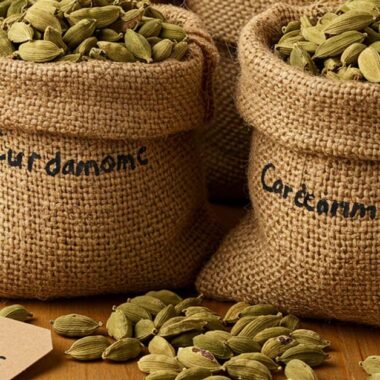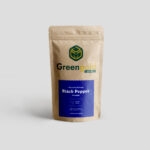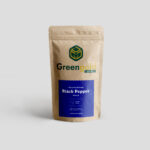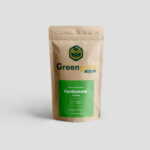Organic farming is more than just a trend—it’s a sustainable way to grow food while protecting the environment. When it comes to cardamom, choosing organic farming over conventional methods offers a range of environmental benefits that help maintain biodiversity, soil health, and water purity.
Let’s dive into the eco-friendly advantages of organic cardamom farming! 🌍♻️
🌿 1. Protects Soil Health & Prevents Degradation
Unlike conventional farming, which relies on synthetic fertilizers and pesticides, organic cardamom farming focuses on natural soil enrichment techniques.
✔️ Improves soil fertility by using compost, green manure, and crop rotation.
✔️ Prevents soil erosion by maintaining tree cover and shade-grown farming methods.
✔️ Enhances soil biodiversity, encouraging beneficial microbes and earthworms.
💡 Did You Know? Organic farms use mulching with dried leaves, which helps retain moisture and nutrients in the soil! 🌱
💧 2. Reduces Water Pollution & Improves Water Conservation
Synthetic pesticides and fertilizers used in conventional farming often contaminate rivers, lakes, and groundwater. Organic cardamom farming helps protect water sources in multiple ways:
✔️ No harmful chemical runoff—only natural fertilizers like cow dung, neem cake, and compost are used.
✔️ Better water retention—organic soil holds water more effectively, reducing the need for excessive irrigation.
✔️ Preserves local ecosystems—clean water means healthier wildlife and aquatic life in farming regions.
💡 Tip! If you’re growing cardamom at home, use rainwater harvesting to water your plants naturally! 🌦️
🦋 3. Promotes Biodiversity & Wildlife Conservation
Many shade-grown organic cardamom farms act as mini rainforests, providing shelter for birds, pollinators, and beneficial insects.
✔️ Preserves natural habitats—cardamom is often grown under a forest canopy, preventing deforestation.
✔️ Encourages natural pollinators like bees, butterflies, and birds.
✔️ Supports predator species that naturally control pests, reducing the need for pesticides.
💡 Fun Fact! Shade-grown cardamom farms are home to rare bird species and small mammals, making them vital for wildlife conservation! 🦜🌳
🌍 4. Reduces Carbon Footprint & Fights Climate Change
Organic farming methods help reduce greenhouse gas emissions by avoiding chemical fertilizers and pesticides, which are responsible for a huge carbon footprint.
✔️ No synthetic fertilizers (which release nitrous oxide, a potent greenhouse gas).
✔️ Increased carbon sequestration—shade-grown cardamom absorbs CO₂ from the atmosphere.
✔️ Less fossil fuel consumption—organic farms rely more on natural composting and less on chemical production.
💡 Big Picture! If more farmers adopt organic methods, agriculture could become a key player in fighting climate change! 🌎🔥
🌾 5. Reduces the Impact of Deforestation
Unlike large-scale conventional farming, which often involves clearing forests for monoculture plantations, organic cardamom farming encourages forest-friendly practices.
✔️ Shade-grown cardamom allows trees to remain intact, preventing deforestation.
✔️ Agroforestry techniques help integrate cardamom into natural forests rather than replacing them.
✔️ Maintains ecological balance by protecting native plant species.
💡 Example! Many organic cardamom farms in India and Guatemala grow their crops under the shade of native trees, preserving the forest ecosystem! 🌳
✅ Why Supporting Organic Cardamom Matters
By choosing organic cardamom, you’re not just picking a chemical-free product—you’re supporting a more sustainable future!
🌍 Protects nature—no toxic chemicals harming the environment.
🦋 Preserves biodiversity—wildlife, insects, and pollinators thrive.
💧 Keeps water clean—no pollution from harmful farming chemicals.
🌾 Encourages fair farming—organic farmers often receive better wages.
💡 Next Time You Shop! Look for organic-certified cardamom brands to support eco-friendly farming! 🌿♻️
🌿 Final Thoughts: Growing a Greener Future
Organic cardamom farming is more than just a healthier option—it’s a way to protect the planet while maintaining the rich traditions of spice cultivation. By embracing natural farming methods, we can ensure that future generations continue to enjoy this precious spice without harming the environment.












